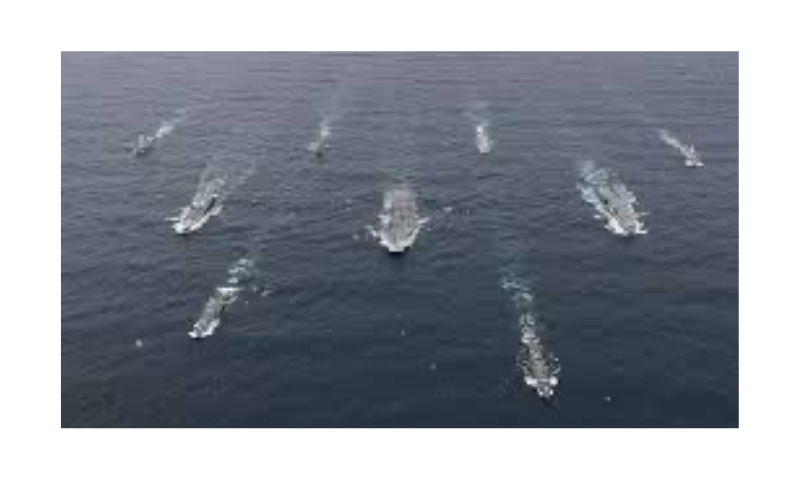Arash Azizi
The Atlantic, Jan. 12, 2024
“An entire generation of Axis fighters has been brought up in Iran’s unique brand of Islamism, with its emphasis on the Islamic Republic as the headquarters of a multinational army that will supposedly one day bring about the downfall of Israel.”
Fridays are holy days of rest in the Middle East, but today the region braces itself for the awful possibility of broader conflict. Following repeated attacks on their warships, the United States and the United Kingdom have finally hit back at the Houthis, a Yemeni militia that holds power in the capital city of Sanaa and is recognized as the official Yemeni government by its main sponsor, the Islamic Republic of Iran.
The attacks come after weeks of warning and a day after a United Nations Security Council resolution asked the Houthis to stop their attacks on commercial shipping in the Red Sea. The recent skirmish has now heightened a fear that has preoccupied Middle Easterners since Hamas’s gruesome attacks on October 7 ushered in a new war with Israel: Could the war spread to an all-out conflagration involving Hamas’s main backer, Iran?
The leadership of the Islamic Republic has spent the past few months in a risky dance. On one hand, it affirms its full support for Hamas and reiterates its demand for the destruction of Israel. On the other, it works hard to avoid a direct confrontation with Israel or the United States, knowing full well that it might not survive such a clash. For years, the Iranian regime thought that it had perfected this dance. Its supreme leader, Ayatollah Ali Khamenei, burnished a reputation as a shrewd strategist for his policy of “strategic patience”—dodging direct conflict with the U.S. or Israel while steadily improving the capabilities of the Iraqi, Lebanese, Syrian, Palestinian, and Yemeni militias that together form the Tehran-led Axis of Resistance.
But the past few years have seen Khamenei’s bluffs called several times. The United States killed the Iranian regime’s foremost military hero and commander of its Quds Force, Qassem Soleimani, in January 2020. Khamenei promised a “harsh revenge” that never materialized. Meanwhile, Israel has repeatedly operated on Iranian territory and has helped kill axis leaders in Iran, Syria, Iraq, and Lebanon. Many of the Iranian leader’s most ardent champions now openly criticize him as too cautious. From Tehran to Baghdad, such supporters are clamoring to be sent to Gaza to confront Israel directly.
… [To read the full article, click here]


